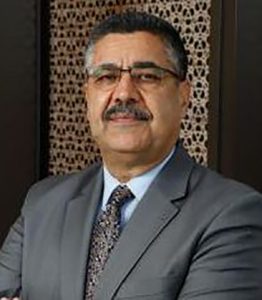Afghan musicians escape Taliban oppression
In the maelstrom that was the evacuation of at risk civilians from Kabul as the Taliban took control of Afghanistan, more than few remarkable stories emerged.
One of them concerned the musicians of the Afghan National Institute of Music, who feared being targeted by the Taliban because of its ban of any non-religious music.
 Fearing prison, or worse, a hundred musicians from the institute made a dramatic nail-biting flight to freedom.
Fearing prison, or worse, a hundred musicians from the institute made a dramatic nail-biting flight to freedom.
The institute’s founder, Melbourne-based Dr Ahmad Sarmast, helped arrange the flight from Kabul to Doha, in August last year, as the Taliban swept to power.
The group of 101 music students and teachers fled after hearing of threats against them.
But the success of the evacuation was in doubt until the last moment. With help from the Qatari embassy in Kabul, the musicians had been ferried in small groups to the city’s airport, Dr Sarmast said.
The first hurdle came when Taliban militants outside Kabul airport questioned the group’s visas. But Qatari embassy officials managed to resolve the problem.
Then the girls and women were told that they could not leave the country with their temporary ‘service passports’, which are usually only issued to officials.
“My understanding is that it was not so much of the type of the passports but that the girls were fleeing the country,” Dr Sarmast said.
Once again, Qatari officials managed to negotiate their passage.
Dr Sarmast said he was overcome with emotion when the flight finally took off hours later with the musicians, including many from the famous all-female Zohra orchestra.
“It was a time of many tears. I was crying endlessly. My family were crying together with me. That was the happiest moment in my entire life,” he said.
The group, about half of them women and girls, have since flown to Portugal with the support of the government there.
The institute’s founder said he had lived many memorable moments with his students, who have won standing ovations on international concert tours.
“But the feeling and the happiness when I heard that their plane took off the ground is very hard to describe,” Dr Sarmast said.
He said the flight was the result of long and careful planning when the Taliban takeover became likely.
“From the moment the Taliban took power in Kabul the discrimination against music and musicians began. The people of Afghanistan were silenced once again,” Dr Sarmast.
The Taliban, which banned music outright during their brutal and oppressive rule from 1996 to 2001, swept back into power on August 15, last year.
They initially promised a more moderate brand of Islamic rule this time – but they have banned women from education and work and have shown they will run Afghanistan according to their restrictive interpretation of sharia law.
Dr Sarmast said the Taliban told the musical institute’s members remaining in Kabul to stay at home until further notice. Months later, they have not been given any further information.
He said the flight to Doha was just a first phase and that he and his network would work until all 184 remaining faculty and students were evacuated and “reunited with the rest of the school”.
Read more about the institute here: Afghanistan National Institute of Music | ANIM (anim-music.org)












